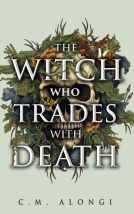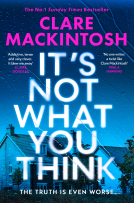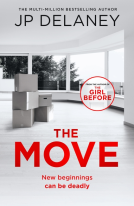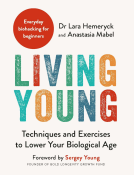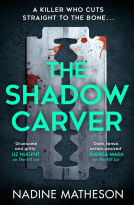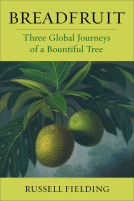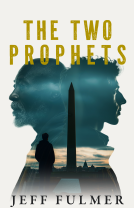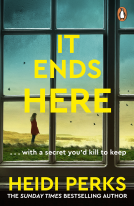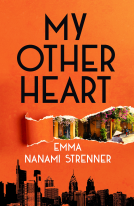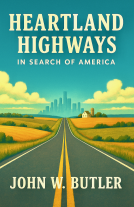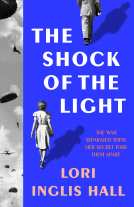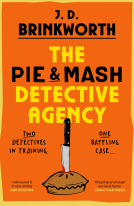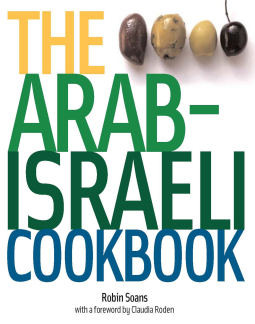
The Arab-Israeli Cookbook -recipes
by Robin Soans, Claudia Roden
This title was previously available on NetGalley and is now archived.
Send NetGalley books directly to your Kindle or Kindle app
1
To read on a Kindle or Kindle app, please add kindle@netgalley.com as an approved email address to receive files in your Amazon account. Click here for step-by-step instructions.
2
Also find your Kindle email address within your Amazon account, and enter it here.
Pub Date 1 Sep 2005 | Archive Date 7 Apr 2025
Aurora Metro | Aurora Metro Books
Talking about this book? Use #TheArabIsraeliCookbookrecipes #NetGalley. More hashtag tips!
Description
A companion to Robin Soans' docudrama The Arab-Israeli Cookbook, this volume collects the actual recipes shared by the people Soans interviewed in Israel and Palestine. The dishes range from carrot cake to kebabs, from falafels to gefilte fish, from tabbouleh to tuna melt. Includes color photographs and commentary on the people who provided the recipes.
Winner of a Gourmand World Cookbook Award and a Special Jury Prize for Peace awarded by the King of Sweden. This was the first book to give cultural equity to Arabs and Jews.
ABOUT THE AUTHORS
As an actor, Robin has appeared in eighty plays, with work at the National Theatre, The Royal Court, The Royal Shakespeare Company, Hampstead, The Tricycle, The Bush and The Young Vic. He has made thirty television appearances and been in twelve films. As a writer, he co-wrote Chobham Armour at the Half Moon Theatre; there then followed Bet Noir (Young Vic); Sinners and Saints (Croydon Warehouse); Will and Testament (Oval); and Not Today Thank you for Capital Radio. In 2000, he wrote A State Affair for Out of Joint. It went on two national tours, had two runs at Soho Theatre and was invited to be performed in the House of Lords. In November 2004 he helped research and then wrote Talking to Terrorists, a co-production between The Royal Court and Out of Joint, and directed by Max Stafford-Clark.
Claudia Roden CBE (née Douek; born 1936) is an Egyptian-born British cookbook writer and cultural anthropologist of Sephardi/Mizrahi descent. She is best known as the author of Middle Eastern cookbooks including A Book of Middle Eastern Food, The New Book of Middle Eastern Food and Arabesque—Sumptuous Food from Morocco, Turkey and Lebanon.
Advance Praise
Robin Soans wrote The Arab Israeli Cookbook long before the current hostilities between Israel and Palestine.
It is through cooking that different people come together, sharing a table and dishes that are prepared for it. In the West, we have grown accustomed to those from the Middle East, through Lebanese and Turkish restaurants where we enjoy food most likely prepared by exiles or adventurers, as well as through the delicatessan counter in our local shops. Dishes we know well from the Middle East include falafel, hummus, and stuffed vine leaves, old favourites.
Robin Soans is a playwright who has written about his life and the cooking found in both Israel and Palestine from both sides. He was in the midst of writing a play in Israel, and decided to take photographs to illustrate his play from the vantage point of a perimeter wall overlooking Jerusalem, near the Mount of Olives. While standing with his camera, focussing on a picture, he was approached by two men with machine guns. They did not accept his reply, that he needed the photographs to go with the play he was writing on the Arab-Israeli situation. Clearly thinking he might be a spy, he had to reason with the soldiers, and ended up handing over the film from his camera, but managing to hold onto his camera equipment, with some relief.
In The Arab-Israeli Cookbook, stories accompany the recipes. We learn how to make hummus from Mahdi, a professional hummus maker who rises at 5am each morning to make it, after saying a prayer. He follows the Koran, and breaks the rules by using toothpaste on his teeth as well as water. Light meals include Fattoush, a salad with crisped pieces of bread, ciabatta or pitta. The former is used although the mind boggles about how ciabatta could be the bread of choice in the Middle East. Robin Soans admits his life is liberal North London rather than deprived Palestinian villager.
He also writes of the delightful sounding Schug, a simple condiment made with crushed chilli peppers, seasoned with coriander, paprika, salt and pepper. Yemenis was the maker of the Schug, and his method was to crush the ingredients between two stones.
Some of the recipes come from the D’Heished refugee camp, and are by Fatthiyah, who is there, alone. She had four boys, but her 15-year old was forcibly exiled, her third son was killed, and her two older ones are married but she has no idea where they live now. She also has not been given any news of her 15-year old, and does not know if he is alive or dead. He would be 21 now. Her recipe is for stuffed fish.
And on the Israeli side amongst many other recipes, we have Erev Shabbat, cooked by Nina and Ya-akov at their house, potato salad, gefilte fish, beetroot salad, tahini and much more.
This may be a book published in 2004, but it is truly a book for our times.
Catheryn Kilgarriff, Cookery Publisher at Prospect Books
Marketing Plan
reprint and relaunch this backlist title due to current political situation
reprint and relaunch this backlist title due to current political situation
Available Editions
| EDITION | Paperback |
| ISBN | 9780951587751 |
| PRICE | £12.99 (GBP) |
| PAGES | 96 |
Available on NetGalley
Average rating from 70 members
Featured Reviews
The Arab-Israeli Cookbook is a well (and sensitively) written culturally diverse cookbook with recipes curated by Robin Soans. Originally published as a collection to go with the documentary series of the same name from 2005, this volume collects the actual recipes from the show. This reprint (due to the current political climate) from Aurora Metro Books is 96 pages and is available in paperback format.
The cultural aspects of hospitality, food, and gathering to eat together are so inextricably tied to our actual humanity that they can't be separated. Our climates, the areas we grow up, the foods which can be grown there, and how we gather to nourish ourselves are fundamental aspects of our existences. This book (and the associated TV series) are erudite and accessible, and important if we're ever going to move to a place of peace and stability.
It's well photographed throughout. This isn't an updated/new edition, and most of the photos are still shots from the original 2005 series. As such, they're somewhat dated. The recipes are all perfectly usable and accessible, but this is an indie published book which was originally to coordinate with a TV docudrama, and graphically, it looks like it. For what it's worth, in a lot of ways, aesthetically, it *adds* to the authenticity and vulnerability of the situation.These recipes, many of which are personal family recipes, are appealing on an emotional level.The story about a village hummus recipe, and the maker, is direct and honest and told well.
The included recipes, and they are myriad, are written cleanly and without embellishment. Recipe ingredients are written in a bullet list. Measurements are given in imperial (American) units, without metric equivalents. Most of the directions are written sequentially with conversational details added as asides. They're usable as they are, but are more like the result you'd get if you asked a family member for a traditional recipe from your own family than a polished commercially available recipe. Many of the ingredients will need to be sourced at international/Middle Eastern grocery stores or online.
Five stars. This would be a good choice for foodies, public and school library acquisition, and home use.
Disclosure: I received an ARC at no cost from the author/publisher for review purposes.
This cookbook is an incredible way to bring together people, in today's political climate. As an Israeli from a family with people of all backgrounds, food is something that brings us together regularly. We share dishes from our roots, and blend our families and recipes at the same time. I think that it is incredible what food can do to bring together people.
 Reviewer 559304
Reviewer 559304
A true representation of the cuisine of Israel and Palestine from the local people who make the best of the best. Worth every penny to add it to your collection.
 Rosa S, Educator
Rosa S, Educator
This book of stories and photos and food will warm your heart and fill your stomach. Lots of recipes from Middle Eastern culture in this award-winning cookbook.
I like the photos of real people, interesting meals, and backdrops of friendship and neighborly relationships. In this season of war and conflicts, this book is a timely reminder that people are people. Whether someone in power is trying to disrupt, common decency brings us together around the table.
The recipes are organized by type and named for their creators. Made me smile - and hopeful that peace will be rebuilt and prevail through hospitality among Arabs and Israelis (and the rest of us, too.)
Wow!
I had no idea what to expect from this recipe book. This book!
I had not watched the docudrama that it is based on. The descriptions and the people’s experiences of being in Israel, and then the heartwarming recipes that come from such history.. Just wow!
Indulge your senses and embark on a culinary journey like no other with this remarkable recipe book!
From the moment you crack open its pages, you’re transported to the vibrant streets of Israel, where rich history and mouthwatering cuisine converge in a symphony of flavors and stories. I had travelled there many years ago and finally have the answer on how to replicate so many of tte dushes I had tried there!
Even if you haven’t seen the docudrama that inspired this culinary masterpiece, fear not, for every page is infused with the essence of Israel’s diverse culture and the heartfelt experiences of its people.
Each recipe is a treasure of tradition, offering a taste of the past while embracing the present.
And let’s not forget the stunning photos on every page, transporting you to bustling markets, cozy kitchens, and scenic landscapes.
My heartfelt thanks to Aurora Metro Books and Netgalley for granting me the privilege to savor this culinary gem.
Bon appétit!
Charlene 📚🤗🌸 @lastnownext
 Nat M, Reviewer
Nat M, Reviewer
Absolutely love this! As a Lebanese woman, it is so wonderful to not only find a cookbook with authentic recipes, but also have it filled with personal stories to go along with each one. Highly recommend!!
Readers who liked this book also liked:
Jeff Fulmer
General Fiction (Adult), Politics & Current Affairs, Religion & Spirituality
